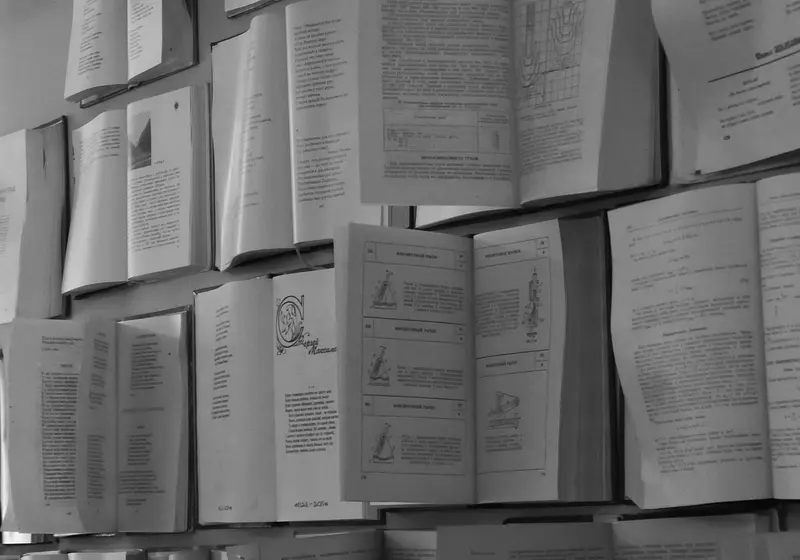Book bans.
For many people, the words conjure up images of Nazi soldiers and bonfires, a rejection of knowledge and diversity and an endorsement of ignorance. Thankfully, that was a long time ago, and such things don’t happen anymore. Right?
Not exactly.
In recent months, there has been a clear resurgence of book banning and censoring, not in autocracies, as you might imagine, but in supposedly “free” countries, such as the United States.
Every year, the American Library Association publishes the titles of its most challenged books. It is from this that I have compiled a list of ten works, each one unique, but all deemed "inappropriate" by someone at some point. And then I'm going to convince you that they're all worth a read.
Let us slide into your dms 🥰
Get notified of top trending articles like this one every week! (we won't spam you)1. The Bluest Eye by Toni Morrison
Summary: Set in Ohio during the aftermath of the Great Depression, the novel tells the story of Pecola Breedlove, an eleven-year-old African-American girl. Heavily influenced by narrow, Eurocentric beauty standards, Pecola prays for blue eyes, believing that if her wish is granted, she will become as beautiful and loved as all of America's blue-eyed, blonde-haired children.
Since its initial publishing in 1970, The Bluest Eye has been celebrated for the richness of the language used, as well as the boldness of its vision, and is now widely considered to be a classic.
Reason(s) for being banned: According to the American Library Association, this book was "banned and challenged because it depicts child sexual abuse and was considered sexually explicit."

Take the Quiz: Which Generation Matches Your Personality?
Discover the generation you truly belong to!
2. All American Boys by Jason Reynolds and Brendan Kiely
Summary: Reynolds and Kiely's 2015 novel is about two teens, Rashad and Quinn, grappling with the impact of a shockingly violent and unwarranted attack on Rashad, who was wrongfully accused of stealing. The story follows them as they navigate the complicated aftermath of the assault and the difficult decisions and consequences facing them as a result.
All American Boys is a deeply emotional and searingly honest take on the effects of police brutality, racial profiling, prejudice, and injustice on a community, a country, and the world at large.
Reason(s) for being banned: According to the American Library Association, this book was "banned and challenged for profanity, drug use, and alcoholism, and because it was thought to promote anti-police views, contain divisive topics, and be 'too much of a sensitive matter right now.'"
3. Speak By Laurie Halse Anderson
Summary: Speak follows thirteen-year-old Melinda Sordino throughout her freshman year of high school, detailing her struggles in the aftermath of her rape at a party the previous summer.
Ostracized by her former friends for calling the police and still reeling from the emotional and mental fallout from the violent attack, Melinda's only refuge is her art class. It is here, in working on a project, that she finds the strength to finally make her voice be heard.
Reason(s) for being banned: According to the American Library Association, this book was "banned, challenged, and restricted because it was thought to contain a political viewpoint and... was claimed to be biased against male students," as well as for its "inclusion of rape and profanity."
4. To Kill A Mockingbird by Harper Lee
Summary: Told from the perspective of young Scout Finch, To Kill a Mockingbird takes place in the town of Maycomb, Alabama, during the Great Depression. Scout and her older brother, Jem, are raised by their widowed father, Atticus Finch, a prominent lawyer.
When he agrees to defend Tom Robinson, a Black man falsely accused of the rape of a white woman, Atticus receives many threats from within the community, but takes on the case anyway. The plot follows the events of Robinson's trial, as well as the childhood adventures of Scout and Jem.
Reason(s) for being banned: According to the American Library Association, this book was "banned and challenged for racial slurs and their negative effect on students, featuring a 'white savior' character, and its perception of the Black experience."
5. Melissa by Alex Gino
Summary: Melissa is a ten-year-old transgender girl, but to the outside world she appears to be a boy, George. However, an opportunity arises when her class puts on a performance of Charlotte's Web. She is determined not only to play the role of Charlotte, but, in doing so, to show everyone who she really is, once and for all.
Melissa, published as George until April 2022, is a sweet and poignant middle-grade story about being yourself and finding your voice.
Reason(s) for being banned: According to the American Library Association, this book was "challenged, banned, restricted, and hidden to avoid controversy; for LGBTQIA+ content and a transgender character; because schools and libraries should not 'put books in a child’s hand that require discussion'; for sexual references; and for conflicting with a religious viewpoint and 'traditional family structure.'"
6. The Handmaid's Tale by Margaret Atwood
Summary: The Handmaid's Tale is set in the near future in the Republic of Gilead, an oppressive, fundamentalist regime where women have been stripped of their rights and categorized into different social groupings based on their fertility status.
The main character, Offred (or June, as she was known prior to Gilead's establishment), is a Handmaid. Her one function is to carry children for an elite but infertile couple, a Commander and his Wife. The plot centers on Offred and her fellow Handmaids as they learn more and more about the dark society they are now a part of, while also featuring flashbacks to the characters' lives before the totalitarian regime took over.
Reason(s) for being banned: According to the American Library Association, this book was "banned and challenged for profanity and for 'vulgarity and sexual overtones.'"
7. The Hate U Give by Angie Thomas
Summary: The Hate U Give is the story of Starr Carter, a sixteen-year-old African-American girl whose world is turned upside down when she witnesses a police officer shoot her childhood best friend, Khalil, dead.
When Khalil's death makes national headlines, Starr must make a life-changing decision: to speak out or to stay quiet? What she says (or doesn't say) could change her community and her country. However, it could also put her life and those of her loved ones in danger.
Angie Thomas's debut novel is a riveting and topical tale of a young woman finding her voice to rally for justice in a country where shootings of unarmed Black people are all too common. It also inspires readers everywhere to fight against the injustices they see in their daily lives.
Reason(s) for being banned: According to the American Library Association, this book was "banned and challenged because it was deemed 'anti-cop,' and for profanity, drug use, and sexual references."
8. The Diary of A Young Girl by Anne Frank
Summary: Written between 1942 and 1944, Anne Frank's diary chronicles the life of the young Jewish teenager during her time in hiding in the "Secret Annexe" of an Amsterdam office building with her parents, sister, and another family.
In her diary, Anne details the struggles of living in such a confined space and the accompanying boredom, hunger, and eternal fear of being discovered by the Gestapo, culminating in an honest, thoughtful and emotional account of her life in hiding.
Reason(s) for being banned: According to the American Library Association, there have been six challenges to this book since their records began, and "most of the concerns were about sexually explicit material." However, there have also been challenges raised because of its "depressing" contents.
9. The Color Purple by Alice Walker
Summary: The Color Purple is the story of two African-American sisters, Celie and Nettie, in rural Georgia during the early twentieth century. Although separated as children, the women remain hopeful that they will meet again at some point. The book is narrated through Celie's searingly honest and painfully truthful letters to God, as well as the letters which Celie and Nettie write to one another.
Alice Walker's novel is a winner of the Pulitizer Prize and National Book Award, and is regarded as a modern classic. It is celebrated and highly praised for its important messages on gender equality and overcoming trauma and abuse.
Reason(s) for being banned: According to the American Library Association, this book was challenged because of its use of "offensive language" and its being "sexually explicit" and "unsuited to age group."
10. Gender Queer by Maia Kobabe
Summary: Maia Kobabe's (e/em/eir) graphic memoir shows readers eir journey towards self-discovery and self-identity, and becoming comfortable in eir own skin.
Originally created as a way to explain to eir family about what being nonbinary and asexual is like, Gender Queer is now one of the most banned books in the United States, topping the 2021 list.
Reason(s) for being banned: According to the American Library Association, this book was "banned, challenged, and restricted for LGBTQIA+ content, and because it was considered to have sexually explicit images."
Conclusion
As you can see from the list above, any book can become a target for banning, classics and contemporaries, historical fiction and non-fiction, speculative fiction and graphic novels alike.
Although the selected books may seem vastly different from one another, one thing they all have in common is their ability to expand the stories, perspectives, and outlooks on life which readers have access to. The opportunities to start discussions on the topics and themes raised in these texts are essential to life in a democracy. We need to be able to have open conversations, listen to voices other than our own, and think critically to reach conclusions.
Unfortunately, these processes are curtailed by those who wish to limit access to these works, simply because they personally take offense to their content. There is no definitive solution to the issue of book banning in society. However, it is imperative that we, as individuals, keep in mind that just because we do not personally agree with the concepts, ideas, and opinions expressed in a particular text, does not give us the right to try to prevent others from obtaining and examining the same material.
To quote Pulitzer Prize-winning author Viet Thanh Nguyen's New York Times opinion piece, “If we oppose banning some books, we should oppose banning any book”.









